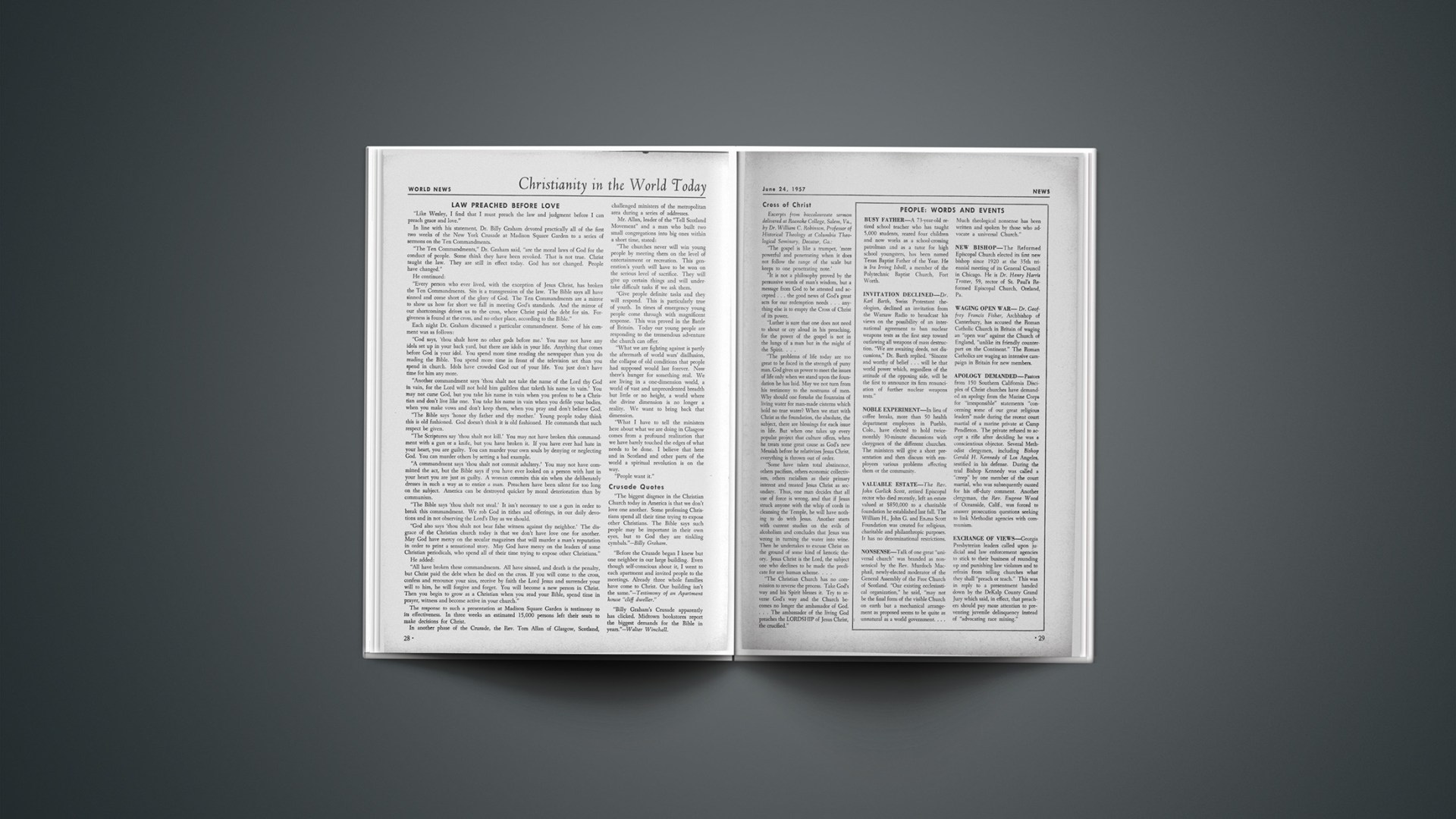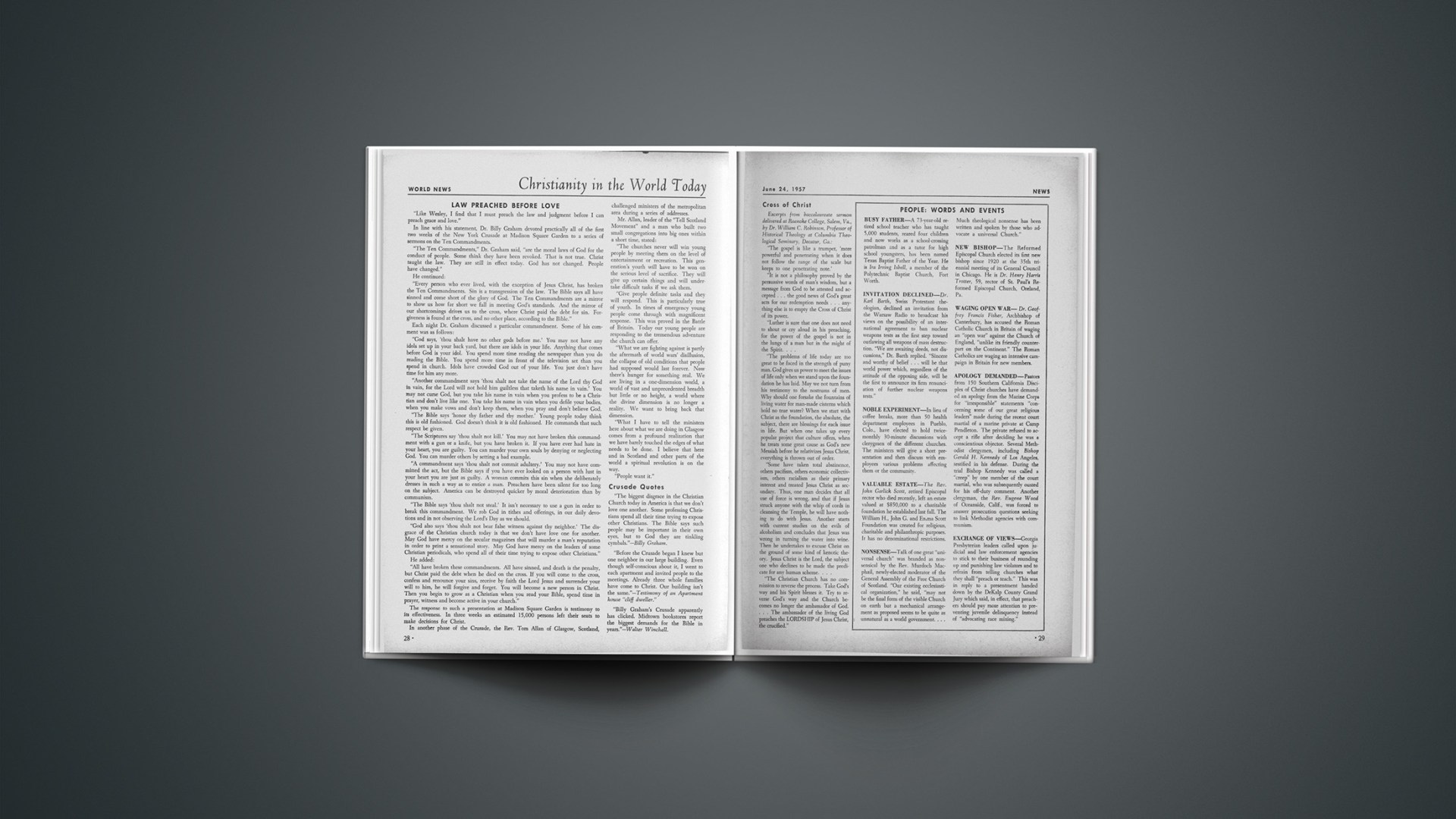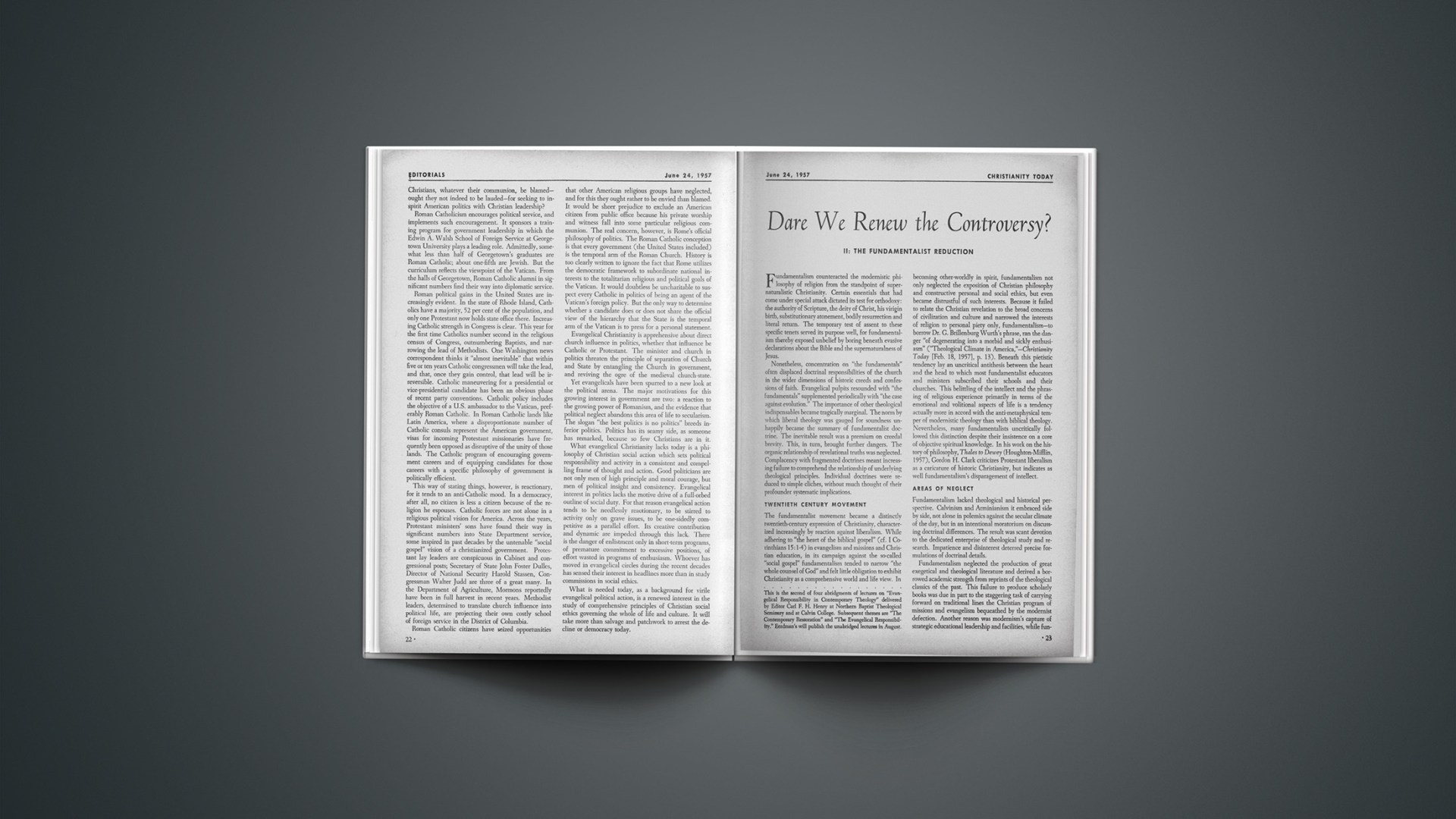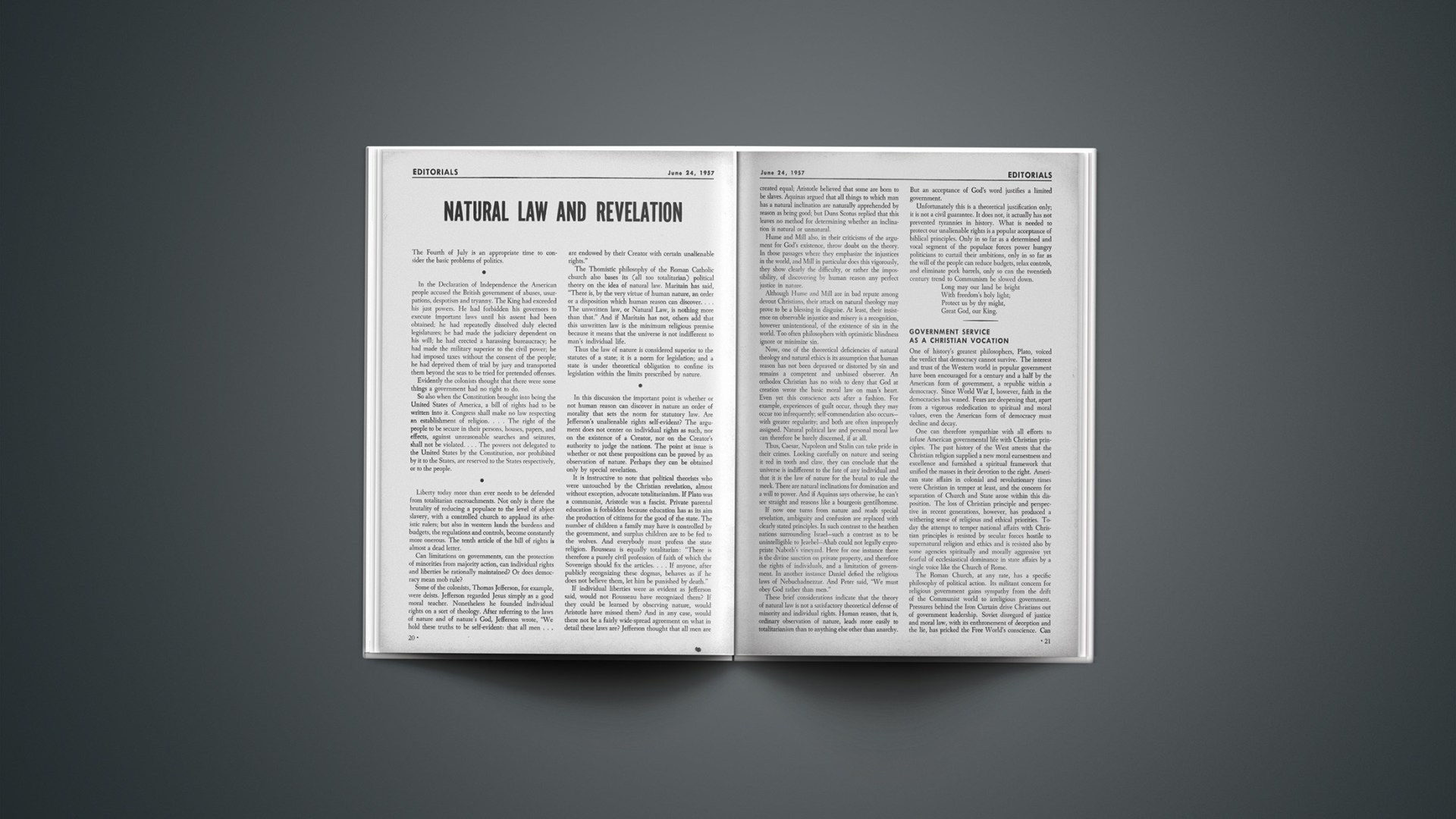When we reflect on the reality and the significance of the Church in the New Testament and on the place of the Church in the midst of the world, we quite naturally come into contact with the question of the relation between the Church and authority. This will be immediately evident if we reflect on the age-old controversy between the Reformation and Rome. It stands to reason, however, that this controversy also plays a role, albeit somewhat differently, when we take note of other discussions about the Church of Jesus Christ.
When the Reformation began, the reformers were sure that they did not intend to place over against the authority in the Church a church without authority. This is what the Roman Catholics affirmed more than once; they asserted that the Reformation refused to acknowledge the authority in the Church. The reformers, however, were convinced that they wanted not the way of less authority, but specifically of more authority, of genuine authority, of an authority which was really the authority of Christ himself.
A church without authority is a pitiable thing, because in that case it is forgotten that the Church is not something of us (our church), but that the important thing in the world is the Church of Jesus Christ, which he governs by his Word and Spirit. For this reason the controversy with Rome is also of significance in any reflection on the body of Christ.
Even those who reject the Roman Catholic view of the Church are thereby not at the end of the road but at the beginning. This becomes fully clear in the New Testament, that the essence of the Church becomes visible only in subjection of the entire Church in all of its aspects to her only Lord.
This existence of the Church is by no means a matter of course, but a permanent calling to which the Church has to subject itself day by day. However important the activity of the Church in the world may be, this activity is legitimate only if, in faith and love and obedience, she remains subject to the authority of her Head, Jesus Christ, as the New Testament says.
The Church may never appeal to the fact of her existence in the world. When Calvin fought the battle of the Church he recognized the significance of the councils, but he also reminded us that Christ would be in our midst only if we are gathered in his name.
The Church may never regard it as a matter of course that she is a church; she must be constantly in subjection to the sacred norm which determines her being. There is no authority of the Church of such a kind that there is no higher appeal, and Calvin reminds us of the danger that the Church may forget her origin and norm. The apostle Paul also warns about this when he says that the Antichrist will set up his throne in the temple of God (2 Thess. 2:4).
The above is no haughty criticism of the Church and it is not the language of the individualist; it is rather a compassionate concern for the Church of Jesus Christ, that she may continue to understand that her only wealth and fullness is that she is the body of Christ, that she may bow her head in submission to her Lord.
The Belgic Confession speaks of this in Article XXIX, when it states that the true Church rejects all things which are contrary to the Word of God and that she regards Jesus Christ as her only Head.
This was not first of all criticism of others, of other churches, but a reminder of the Church’s own ecclesiastical life. In the relation between the churches of the New Testament there is no reason for pharisaism; it is rather that criticism, also of others, is possible and worth-while only if the Church (every church) has first of all applied to herself this sacred norm. Then, in the way of real submission, the Church will be a witness of Christ in the world. Then her own ecclesiastical life will serve as a constant reminder as to what the Church really is and ought to be.
And that is also the meaning of the responsibility of the Church in the world. It will be dark in the Church if she regards her life as an organization, which simply happens to exist and which has gained a place for herself in the world. And if the voice of the only Shepherd is no longer heard in the Church, how will the world understand this voice?
The New Testament contains many different names for the Church of Jesus Christ: the Temple of God, the Body of Christ, the Bride of Christ. And many songs of praise are heard about the Church: “that Christ may dwell in your hearts by faith; that ye, being rooted and grounded in love, may be able to comprehend with all the saints what is the breadth and length and depth and height and to know the love of Christ which passeth knowledge, that ye might be filled with all the fullness of God” (Eph. 3:17–19).
But this wealth and universality of the one Christian Church throughout the world (with all the saints) will become a reality and a witness in the world every day anew, only if the Church understands what her calling is and how she can fulfill that calling. And she will be able to fulfill this task only if she remembers from day to day the word of the apostle Paul, which, although not using the word church, embraces the essence and activity of the Church, when he writes: “casting down imaginations, and every high thing, that exalteth itself against the knowledge of God, and bringing into captivity every thought to the obedience of Christ” (2 Cor. 10:5).
Here is the touchstone of the Church of all ages and under all circumstances. Here is also the answer to the question whether the Church will really be a blessing in the world, which needs most of all to hear the voice of the only Shepherd.











